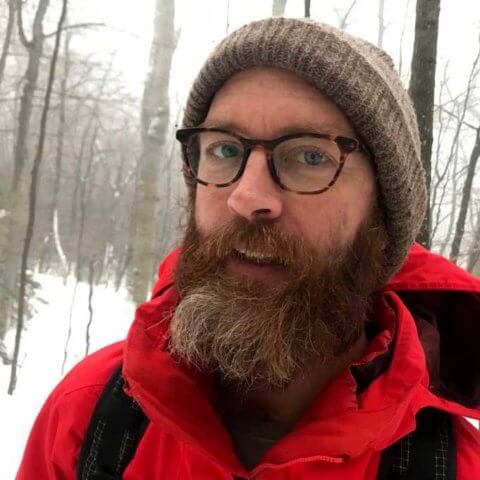Thanks to the generosity of The Alfred P. Sloan Foundation, the UCSF Archives and Special Collections department is offering six $2000 awards to educators who develop curricular modules or lesson plans that use the materials of the new COVID Tracking Project Archive. These curriculum awards are meant to raise awareness of the CTP Archive and its educational value among teachers and researchers. Applications are open and applicants will be notified two weeks after applying.
About The COVID Tracking Project Archive
The COVID Tracking Project at The Atlantic (CTP) was an influential volunteer-driven project that had a tremendous impact on research, policy, and public understanding in the first year of the pandemic. More than 1,000 academic papers have cited The COVID Tracking Project, including papers in major medical journals such as JAMA, The Lancet, and Science, and the project has been mentioned more than 7,700 times in US and international media. The project’s data and charts were regularly used and cited by major news organizations such as The New York Times, CNN, MSNBC, and Fox News, as well as by many federal government agencies and officials in both the 45th and 46th presidential administrations, including in the Biden administration’s January 2021 National Pandemic Preparedness plan. The COVID Tracking Project’s data API received on average about 6TB of traffic each month and about 5-6 million requests per day, while its website received over 16 million unique visitors. Highly-trafficked COVID data destinations such as the Johns Hopkins Coronavirus Resource Center, Our World in Data, and The New York Times’s COVID dashboard drew data from The COVID Tracking Project’s API to augment other data sources.
As federal sources began providing more and better COVID-19 data, leaders of The COVID Tracking Project began planning for an orderly shutdown, announcing in February of 2021 that the project would cease data collection one year after its inception, on March 7, 2021. Part of that orderly shutdown included identifying an archival partner to preserve the records and data of this remarkable project: UCSF Archives and Special Collections was chosen as the best steward of these resources, and UCSF agreed to acquire and process this unique born-digital collection, aided by a grant from the Alfred P. Sloan Foundation.
This collection will be useful for research and teaching in a variety of academic fields, including but not limited to data journalism, public health, epidemiology, statistics, web design and development, and data science. Materials in the COVID Tracking Project Archive that are or will be available for research and teaching include the following:
- Open datasets of COVID-19 data
- Daily United States COVID-19 Testing and Outcomes Data By State, March 7, 2020 to March 7, 2021
- Daily United States COVID-19 data for select cities and counties, May 29, 2020 to October 21, 2020
- Annotations on COVID-19 State Data Definitions as of March 7, 2021
- Weekly United States COVID-19 Long-term Care Data By State, May 28, 2020 to March 4, 2021
- Data from the COVID Racial Data Tracker
- A large collection of daily screenshots of COVID-19 data dashboards and websites published by 56 U.S. states and territories between March 2020 and March 2021
- Daily timestamped versions of the project’s website as it evolved between March 2020 and March 2021, including the project’s widely-shared charts
- Copies of the project’s widely-read analysis and updates
- Code, data, and issues currently hosted on GitHub
- Over 70 oral history interviews with key COVID Tracking Project staff and volunteers as audio recordings and text transcriptions
- Daily tweets from the Twitter account @COVID19Tracking with over 500,000 followers available in JSON and other formats
- Dozens of Google Docs and complex Google Sheets used for internal management of the project, many with timestamped revisions
- Selections from the project’s Slack communications
- Selected emails between project staff and government officials
Awardees will have access to all the materials in the collection not under embargo as well as the insight of a prior staff member of the COVID Tracking Project and current archivist of the collection for UCSF. Any applicants who wish to see examples of CTP archive materials not currently available may email CTP Archive Lead Kevin Miller at kevin.miller@ucsf.edu, although we may not be able to grant all requests.
Who is eligible
Anyone in the US who teaches a college or university course in any discipline is eligible to apply for the award, including graduate students, postdoctoral fellows, lecturers, and faculty at all levels. Applicants must be contracted to teach a full-length course before July 15, 2023 in any term, including summer sessions. Courses may be of any level, including those for undergraduate, graduate, and professional program students.
Award information and terms
- Each recipient will receive a single award of $2,000. Six awards will be made: three awards to UCSF instructors and three awards to instructors from other institutions.
- The material must be taught within one year of the award date.
- For UCSF instructors, the $2,000 award can be paid in the form of stipend or can be applied to salary. Non-UCSF instructors will be paid as independent contractors and university will issue a payment of $2,000 directly to the individuals. There are income tax implications for the award; awardees are responsible for any taxes.
- Proposed lesson plans or modules may be revised at any time between the award date and the beginning of the course term, but revisions must be approved by the award committee. The award will be made upon receipt of a complete course syllabus with the approved lesson plan or module.
Application process
You must include:
- Your name, email, university, department(s), and title
- The course code, title, and description of the course in which you propose to use the CTP Archive materials
- The academic term and calendar dates of the course in which you propose to use the CTP Archive materials
- No more than 3 learning objectives for the proposed lesson or module
- Indication of which materials from the CTP Archive you propose to use
- A brief explanation (maximum 500 words) of how and why you propose to use the CTP Archive materials to teach the stated learning objective(s); this can be framed as a detailed lesson plan or as a general narrative
- A brief draft (maximum 250 words) of the assignment or module as it would appear on your syllabus
- A signed commitment to diversity statement
Applications are open and applicants will be notified two weeks after applying.
Optionally, you may also attach a draft of your course syllabus and/or links to other course materials.
Evaluation
Applications will be reviewed by a committee of COVID Tracking Project Archives staff and Advisory Board members using the following criteria:
- The learning objectives are clearly stated, important for the course and discipline, and well-matched with the proposed lesson plan or module
- The proposed lesson plan or module is interesting and well-written and actively engages students with the materials in the archive
- The application shows familiarity with the materials in the CTP Archive and clearly explains both how these materials will be used in the course and why these materials are particularly well-suited for this course
- Novelty and impact of the proposed lesson plan
General examples of assignments might include asking students to compare aggregated state-level data from any of The COVID Tracking Project’s datasets to federal-level or county-level data from the same period; asking students to compare screenshots from two or more states in order to assess which states most effectively presented COVID-19 data and how their presentation changed over time in the first year of the pandemic; or asking students to read selections from the project’s internal communications, documents, and oral history transcripts in order to study how citizen-led civic science initiatives are organized.
Here are two examples of courses that have already made good use of CTP materials:
- Jeff Ondich, Carleton College, CS257: Software Design, Fall 2020. Implementing a Database-Driven API
- Daniel Libertz, Baruch College, ENG 4950: Data and Writing Toward Social Change, Spring 2021. Balancing Tensions in Counting and Classifying
See also Tristan Mahr, “The Cursed Morgan Stanley Covid-19 Visualization: What Went Wrong?” Higher Order Functions, March 23, 2022. https://tjmahr.github.io/morgan-stanley-cursed-covid-plot/. This blog post could easily be turned into a lesson in a data science course.
Please note that while we have provided the above examples for guidance, we are not looking only for proposals that imitate them closely: we encourage proposals for any and all creative and effective pedagogical uses of material in the CTP Archive.
Additional information for applicants
Please email Kevin Miller, COVID Tracking Project Archive Lead, at kevin.miller@ucsf.edu with any questions, including requests for access to materials in the CTP Archive that are not yet available.

